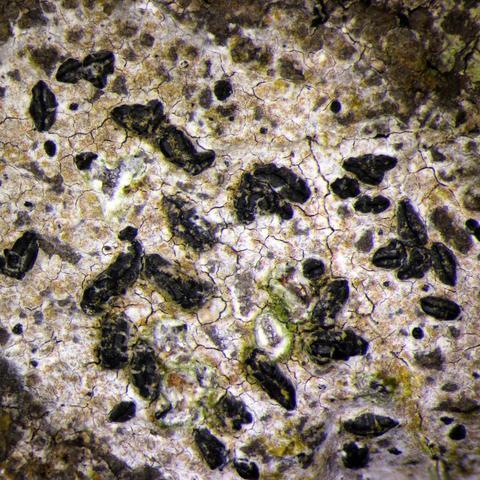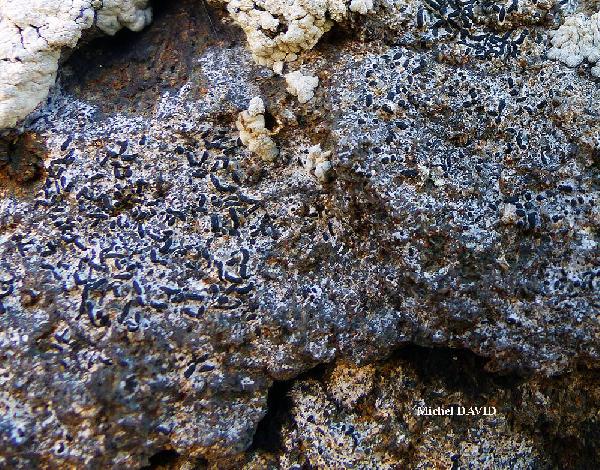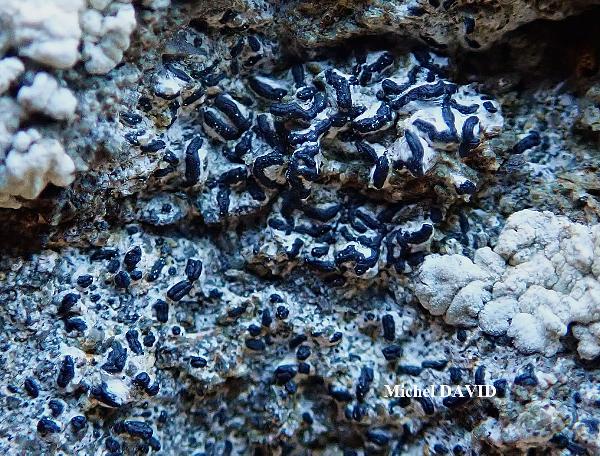Opegrapha cesareensis Nyl.
Flora, 51: 477, 1868.
Synonyms:
Distribution: C - Sar (B - Leg. H. Sipman nr. 24085).
Description: Thallus crustose, granulose, whitish to grey, often with a lilac tinge, sometimes poorly evident, usually delimited by a dark prothalline line. Apothecia lirelliform, usually branched, (0.3-)0.5-1.5(-2) x (0.15-)0.2-0.3(-0.45) mm, 0.2-0.6 mm tall, black, epruinose, markedly prominent, sessile to semi-immersed, sometimes clustered into subglobose pillows, with a slit-like disc and a raised proper margin. Proper exciple carbonized, extending below the hymenium and there up to 250 µm high, K+ dull green; epithecium poorly developed, brownish; hymenium colourless, (65-)75-90 µm high, I+ blue in upper part; paraphysoids branched and anastomosing, c. 1 µm thick, the apical cells hardly swollen; subhymenium pale brown, 20-30 µm high. Asci 8-spored, cylindrical-clavate, the inner endoascus amyloid in upper part, with an amyloid ring-structure around the ocular chamber, intermediate between the Calcarea- and the Vulgata-types, 65-75 x 12-15 µm. Ascospores (2-)3-5(-7)-septate, with equal cells, hyaline, ellipsoid to subfusiform, straight or slightly curved, (13-)16-23(-26) x 3-4(-5) µm, with a thin gelatinous perispore which is visible only in young spores. Pycnidia black, immersed. Conidia hyaline, straight or slightly curved, (4-)5-7(-8) x 0.7-1.2 µm. Photobiont trentepohlioid. Spot tests: K-, C-, KC-, P-, UV-. Chemistry: without lichen substances. Note: a rare species growing on steeply inclined to underhanging surfaces of siliceous rocks, usually near the coasts. The material from Sardinia was collected at Punta Falcone (Sassari), on siliceous schist boulders and outcrops on steNote: a rare species growing on steeply inclined or rain-sheltered surfaces of siliceous rocks, usually near the coasts. The material from Sardinia was collected at Punta Falcone (Sassari), on siliceous schist boulders and outcrops on steep slopes with garrigue at seashore.
Growth form: Crustose
Substrata: rocks
Photobiont: Trentepohlia
Reproductive strategy: mainly sexual
Most common in areas with a humid-warm climate (e.g. most of Tyrrenian Italy)
Taxon bound to maritime-coastal situations
Commonnes-rarity: (info)
Alpine belt: absent
Subalpine belt: absent
Oromediterranean belt: absent
Montane belt: absent
Submediterranean belt: absent
Padanian area: absent
Humid submediterranean belt: absent
Humid mediterranean belt: extremely rare
Dry mediterranean belt: absent
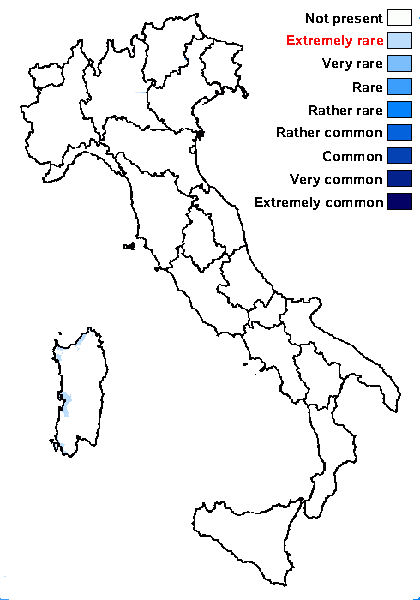
Predictive model
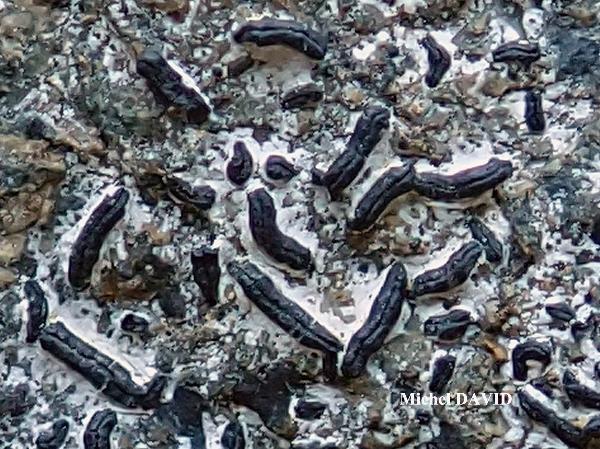
Michel David - Source: http://www.lichensmaritimes.org/index.php?task=fiche&lichen=83&lang=en
France, Crozon, Pointe de Kerdra
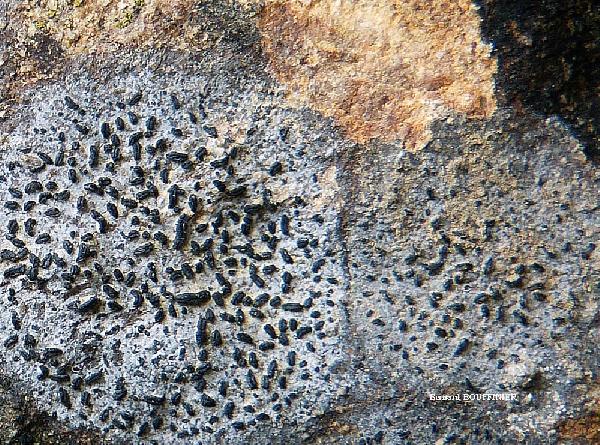
Bernard Bouffinier - Source: http://www.lichensmaritimes.org/index.php?task=fiche&lichen=83&lang=en
France, Le Zorn
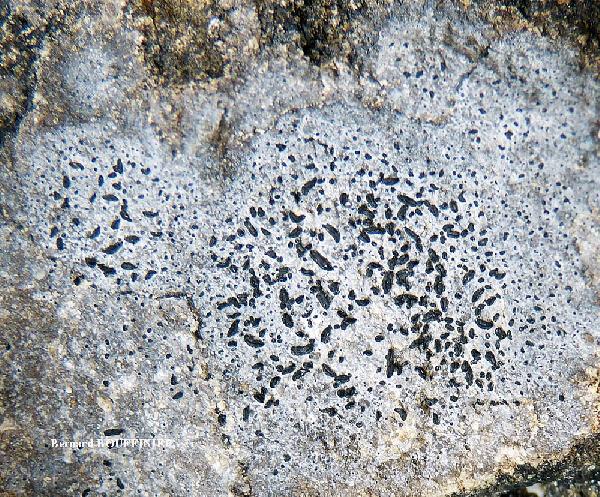
Bernard Bouffinier - Source: http://www.lichensmaritimes.org/index.php?task=fiche&lichen=83&lang=en
France, Le Zorn
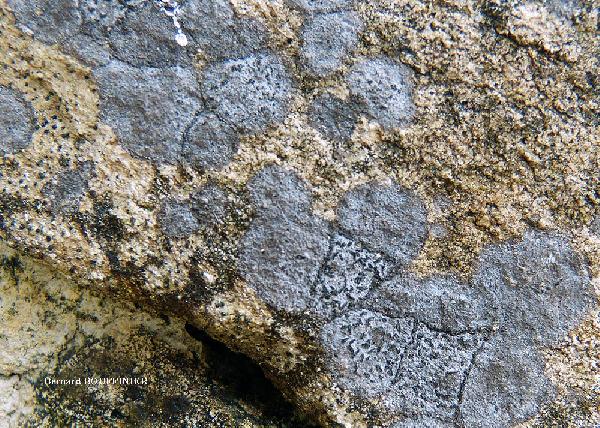
Bernard Bouffinier - Source: http://www.lichensmaritimes.org/index.php?task=fiche&lichen=83&lang=en
France, Le Zorn
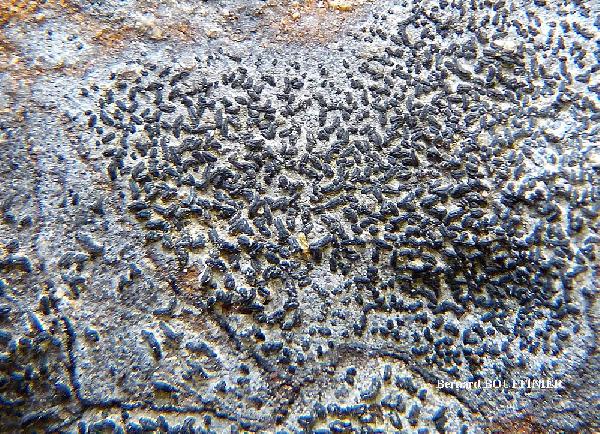
Bernard Bouffinier - Source: http://www.lichensmaritimes.org/index.php?task=fiche&lichen=83&lang=en
France, Le Zorn
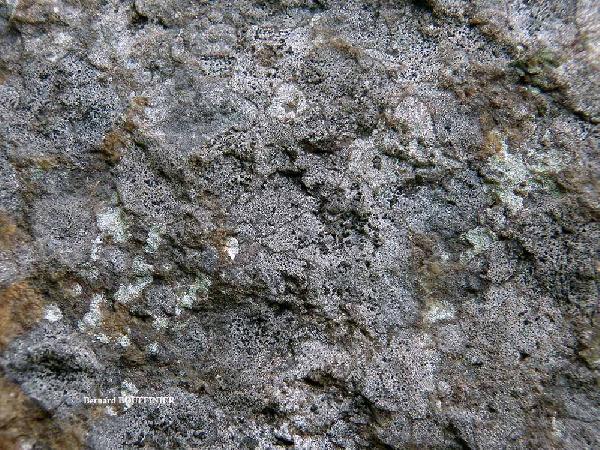
Bernard Bouffinier - Source: http://www.lichensmaritimes.org/index.php?task=fiche&lichen=83&lang=en
France, Pointe de Primel
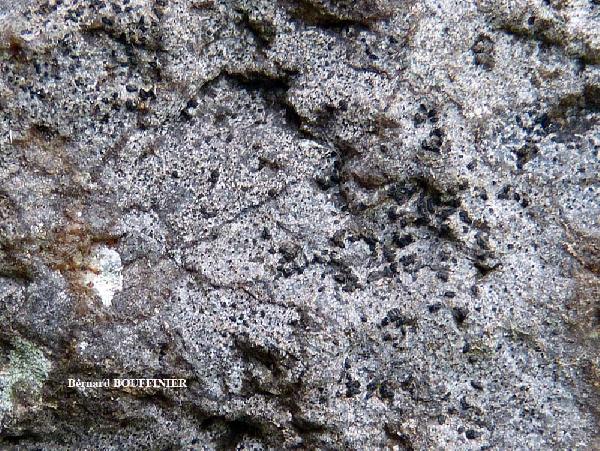
Bernard Bouffinier - Source: http://www.lichensmaritimes.org/index.php?task=fiche&lichen=83&lang=en
France, Pointe de Primel
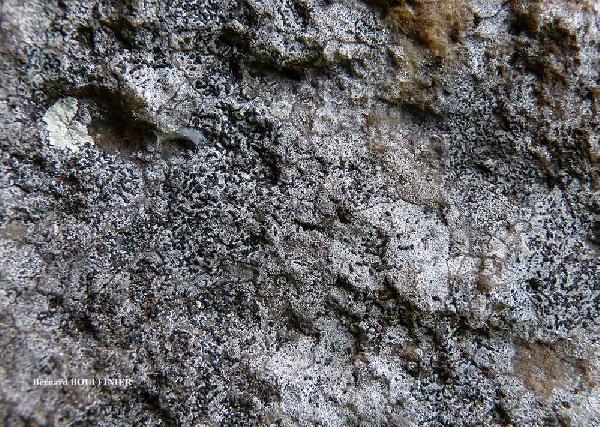
Bernard Bouffinier - Source: http://www.lichensmaritimes.org/index.php?task=fiche&lichen=83&lang=en
France, Pointe de Primel
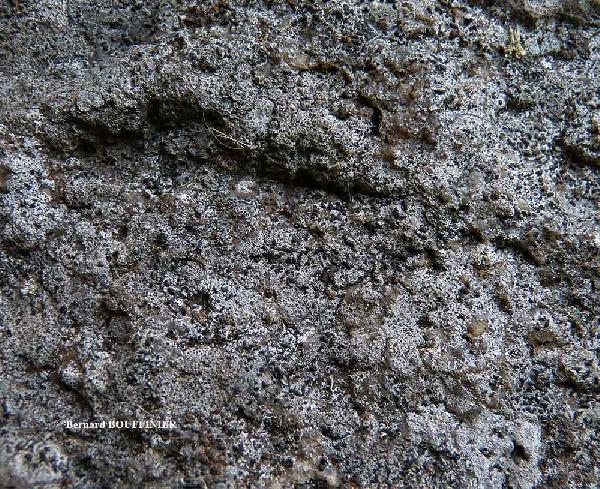
Bernard Bouffinier - Source: http://www.lichensmaritimes.org/index.php?task=fiche&lichen=83&lang=en
France, Pointe de Primel
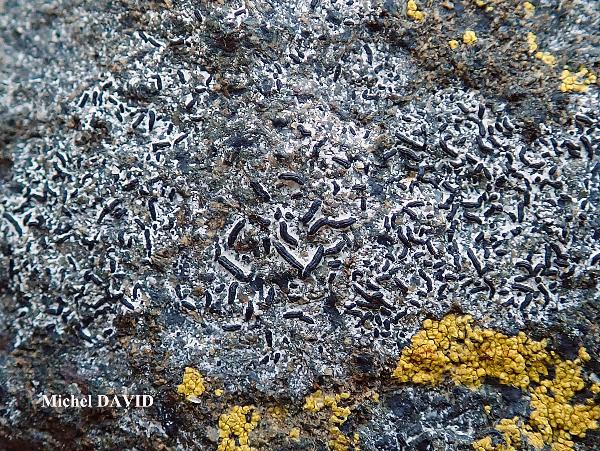
Michel David - Source: http://www.lichensmaritimes.org/index.php?task=fiche&lichen=83&lang=en
France, Crozon, Pointe de Kerdra
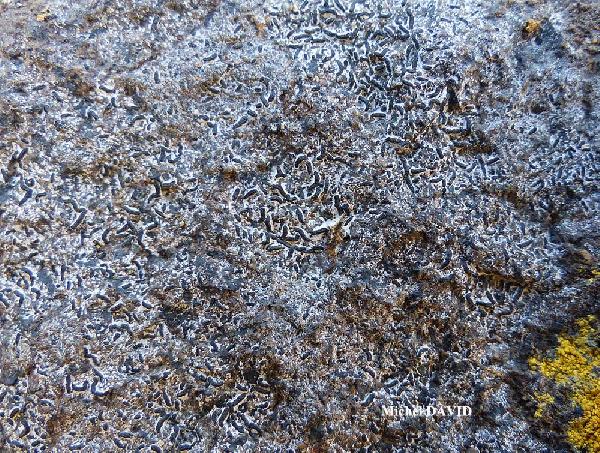
Michel David - Source: http://www.lichensmaritimes.org/index.php?task=fiche&lichen=83&lang=en
France, Crozon, Camaret
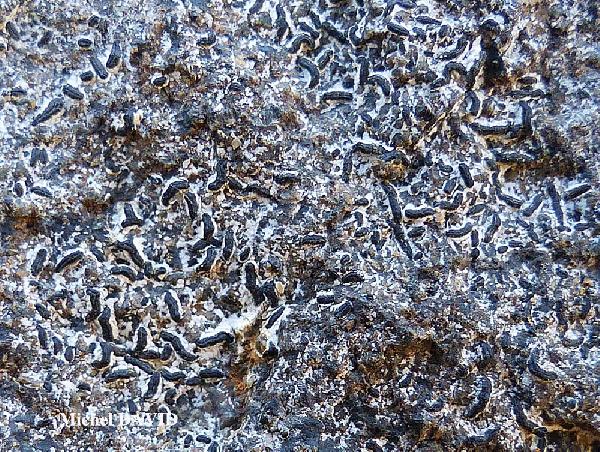
Michel David - Source: http://www.lichensmaritimes.org/index.php?task=fiche&lichen=83&lang=en
France, Crozon, Camaret
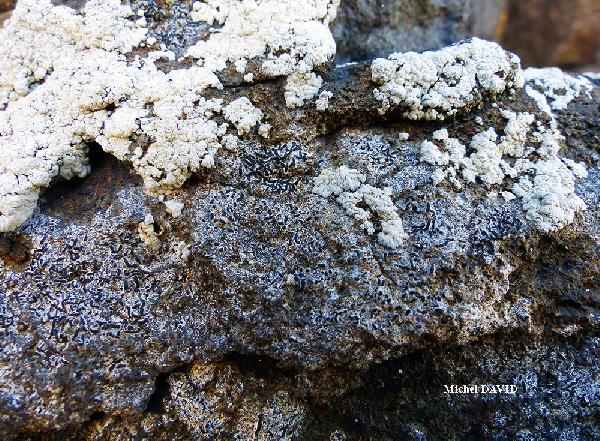
Michel David - Source: http://www.lichensmaritimes.org/index.php?task=fiche&lichen=83&lang=en
France, Crozon, Pointe de Kerdra
Growth form: Crustose
Substrata: rocks
Photobiont: Trentepohlia
Reproductive strategy: mainly sexual
Most common in areas with a humid-warm climate (e.g. most of Tyrrenian Italy)
Taxon bound to maritime-coastal situations
Commonnes-rarity: (info)
Alpine belt: absent
Subalpine belt: absent
Oromediterranean belt: absent
Montane belt: absent
Submediterranean belt: absent
Padanian area: absent
Humid submediterranean belt: absent
Humid mediterranean belt: extremely rare
Dry mediterranean belt: absent

Predictive model

Michel David - Source: http://www.lichensmaritimes.org/index.php?task=fiche&lichen=83&lang=en
France, Crozon, Pointe de Kerdra

Bernard Bouffinier - Source: http://www.lichensmaritimes.org/index.php?task=fiche&lichen=83&lang=en
France, Le Zorn

Bernard Bouffinier - Source: http://www.lichensmaritimes.org/index.php?task=fiche&lichen=83&lang=en
France, Le Zorn

Bernard Bouffinier - Source: http://www.lichensmaritimes.org/index.php?task=fiche&lichen=83&lang=en
France, Le Zorn

Bernard Bouffinier - Source: http://www.lichensmaritimes.org/index.php?task=fiche&lichen=83&lang=en
France, Le Zorn

Bernard Bouffinier - Source: http://www.lichensmaritimes.org/index.php?task=fiche&lichen=83&lang=en
France, Pointe de Primel

Bernard Bouffinier - Source: http://www.lichensmaritimes.org/index.php?task=fiche&lichen=83&lang=en
France, Pointe de Primel

Bernard Bouffinier - Source: http://www.lichensmaritimes.org/index.php?task=fiche&lichen=83&lang=en
France, Pointe de Primel

Bernard Bouffinier - Source: http://www.lichensmaritimes.org/index.php?task=fiche&lichen=83&lang=en
France, Pointe de Primel

Michel David - Source: http://www.lichensmaritimes.org/index.php?task=fiche&lichen=83&lang=en
France, Crozon, Pointe de Kerdra

Michel David - Source: http://www.lichensmaritimes.org/index.php?task=fiche&lichen=83&lang=en
France, Crozon, Camaret

Michel David - Source: http://www.lichensmaritimes.org/index.php?task=fiche&lichen=83&lang=en
France, Crozon, Camaret

 INDEX FUNGORUM
INDEX FUNGORUM
 GBIF
GBIF
